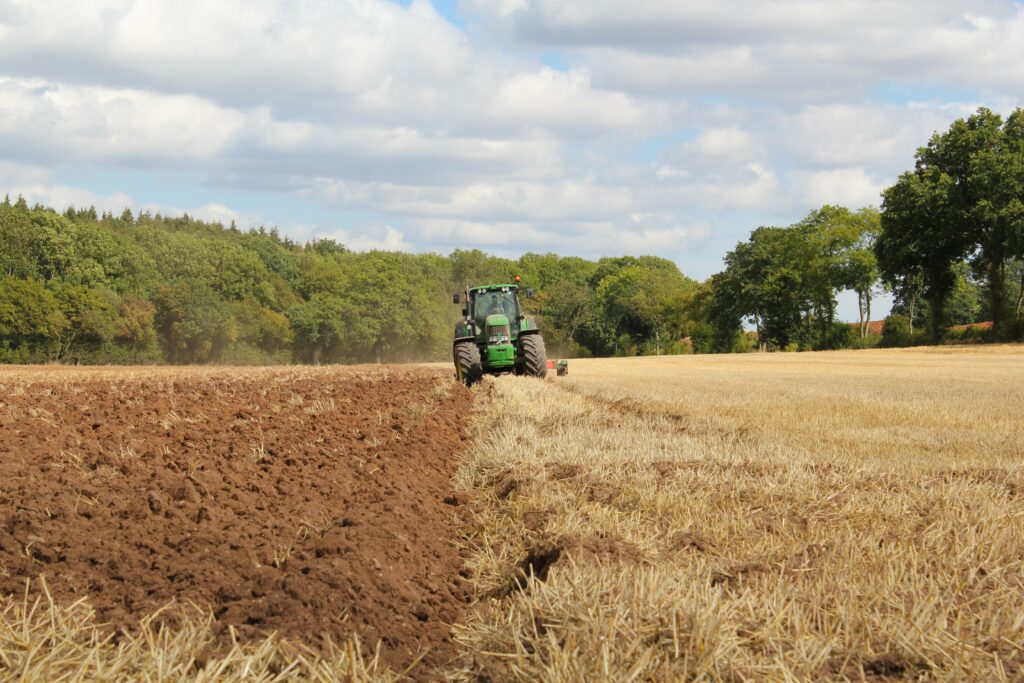Bryan Winquist is a dedicated Environmental Health and Safety Manager at Tyson Foods and a proactive advocate for sustainable agriculture practices. With a robust background as a firefighter and paramedic, Bryan brings a unique perspective to his role, emphasizing preparedness and proactive safety measures. He holds a Bachelor’s degree in Biological Sciences from the University of Wisconsin, which underpins his expertise in environmental health.
At Tyson Foods, Bryan Winquist leads initiatives to integrate safety protocols that protect employee welfare while enhancing operational efficiency. Outside of his corporate responsibilities, he manages Nubian Meadows, his farm in Somerville, Tennessee, where he employs sustainable methods to raise Angus cattle and cultivate crops. His farm serves as a model for implementing eco-friendly practices and advanced agricultural technologies.
A lifelong learner and an active member of the National Fire Protection Association, Bryan is committed to continual professional development and community engagement. He passionately shares his knowledge through workshops and training, aiming to foster safer and more sustainable agricultural communities. Bryan’s dual commitment to enhancing workplace safety and promoting environmental stewardship marks him as a leader in both the agricultural and corporate safety sectors.

How did your experiences as a firefighter and paramedic influence your approach to safety in the agricultural sector?
My time in emergency services taught me the critical importance of preparedness and proactive measures. In agriculture, this translates into implementing rigorous safety protocols and continuously training staff to handle emergencies, much like preparing for fire or medical emergencies in urban settings.
What led you to integrate sustainable practices into your farming operations at Nubian Meadows?
Sustainability is about securing long-term productivity and health, both of which are paramount in farming. Witnessing the direct impact of sustainable practices on both the environment and operational efficiency made it a clear path for Nubian Meadows.
Can you describe a specific sustainable practice you’ve implemented on your farm that you find particularly effective?
One of the most impactful practices has been the integration of solar power. It’s not only reduced our carbon footprint but also decreased our energy costs significantly, making it a win-win for sustainability and economic viability.
What challenges do you face when promoting safety and sustainability within Tyson Foods, and how do you address them?
One major challenge is aligning diverse team goals and perspectives with sustainability and safety objectives. We address this through clear communication, ongoing education, and by demonstrating the tangible benefits of these practices, such as cost savings and enhanced worker safety.
How do you measure the success of your safety and environmental health programs?
Success is measured through a combination of metrics including incident rates, compliance scores, and employee feedback. We also look at environmental impact indicators like waste reduction and water usage to gauge the effectiveness of our sustainability initiatives.
In your opinion, what is the most overlooked aspect of farm safety that should receive more attention?
Mental health is often overlooked in the agricultural sector. The isolation and stressful work can take a toll on workers’ mental health, so providing support and resources in this area is crucial for overall safety and well-being.
How do advancements in technology help you manage both your roles more effectively?
Technology, especially data analytics and automation, plays a huge role. For example, using precision farming technologies helps us apply resources more efficiently and safely on the farm, while similar data-driven approaches at Tyson help enhance worker safety and operational efficiency.
What are some key trends you see shaping the future of environmental health and safety in agriculture?
I see a significant move towards more integrated technology solutions, such as IoT devices for real-time monitoring of both environmental conditions and equipment. Additionally, there’s a growing emphasis on holistic health and safety programs that include psychological aspects.
Q9: What advice would you give to someone starting their career in environmental health and safety in the agricultural sector?
Dive deep into both the specifics of agriculture and the fundamentals of environmental health and safety. Being well-versed in both areas allows you to effectively bridge gaps between traditional farming practices and modern safety requirements.
Looking forward, what new initiatives or projects are you excited about at Tyson Foods or on your farm?
I’m particularly excited about expanding our use of AI to predict and prevent potential safety incidents before they occur. On the farm, I’m looking to experiment with aquaponics as a sustainable farming method that conserves water and space while producing both crops and fish. These initiatives reflect our commitment to innovation and sustainability in all aspects of our operations.


